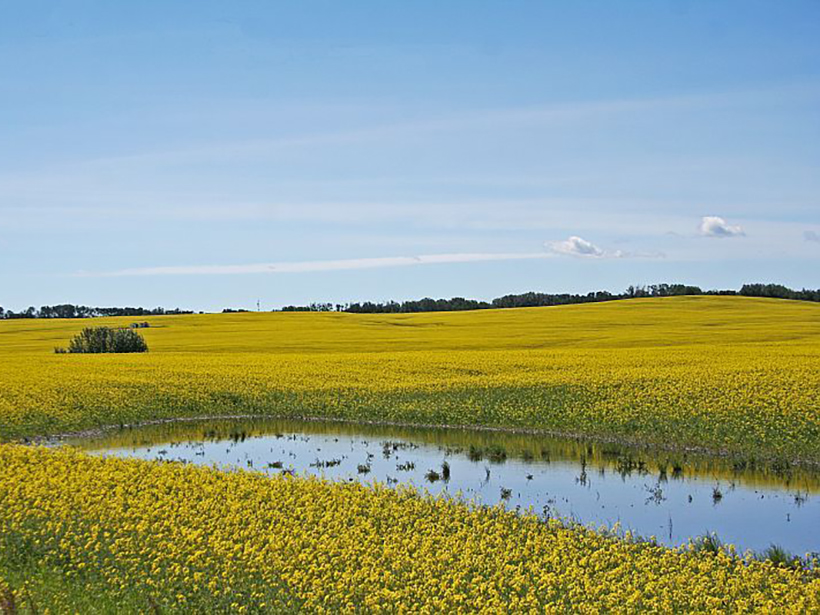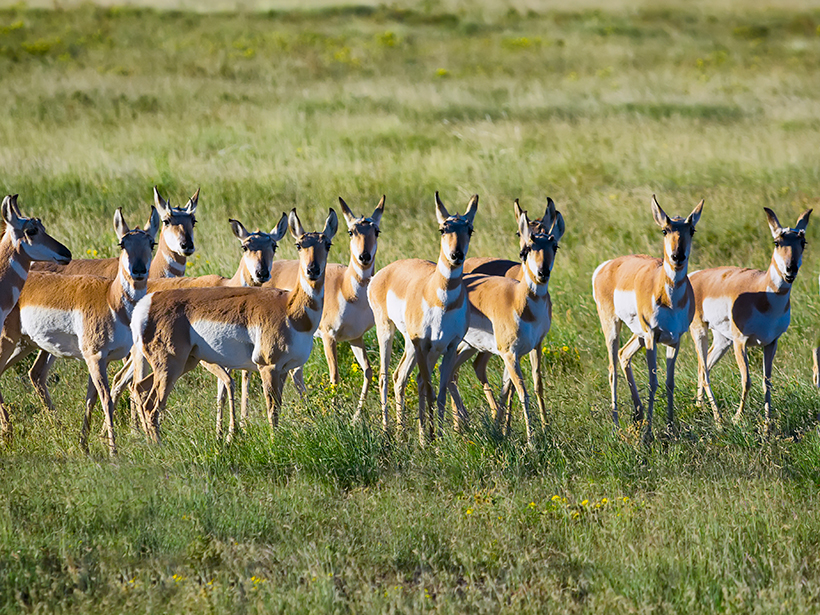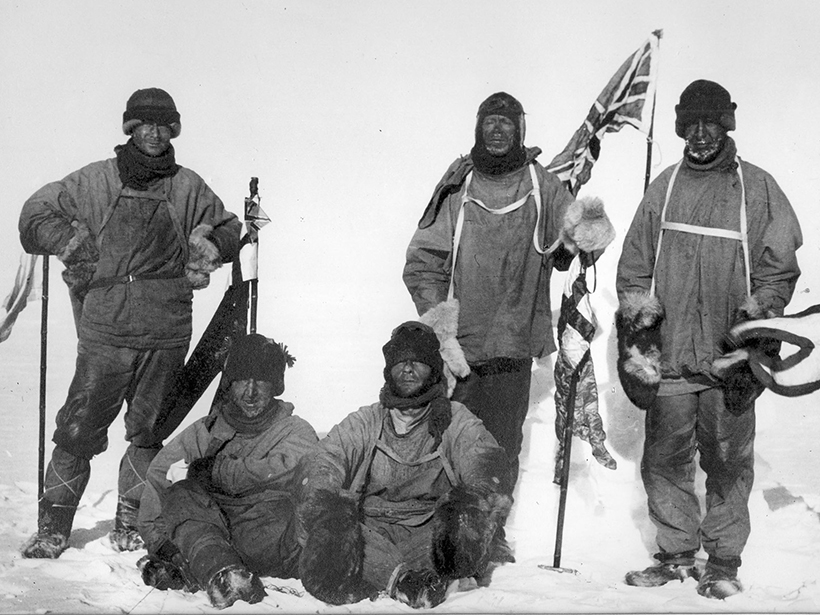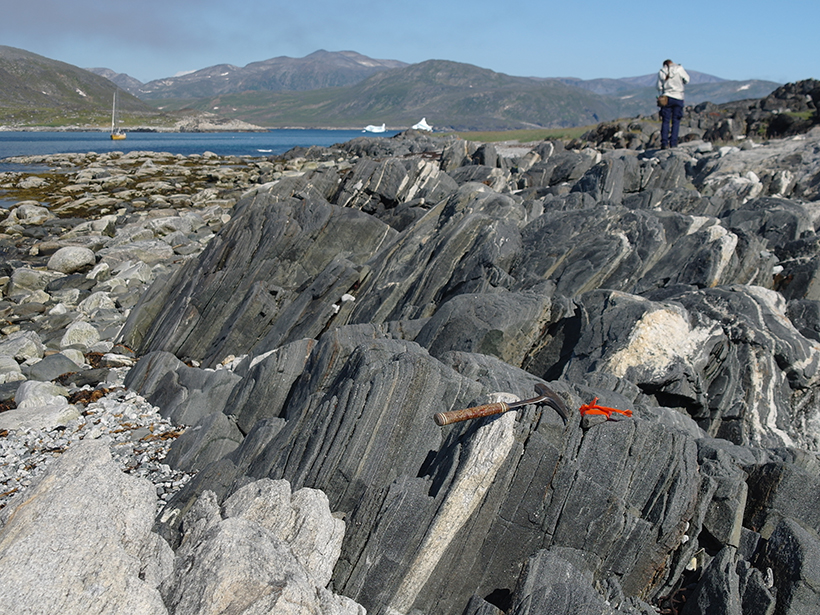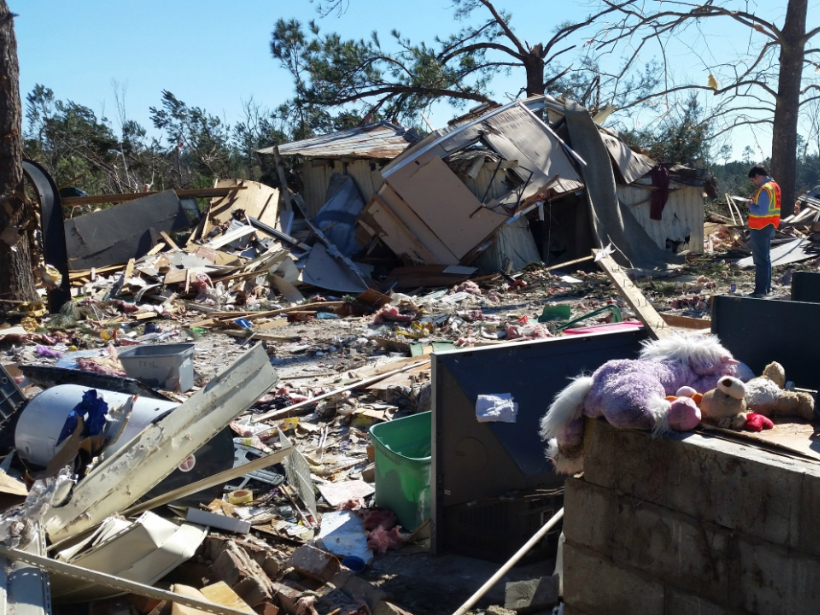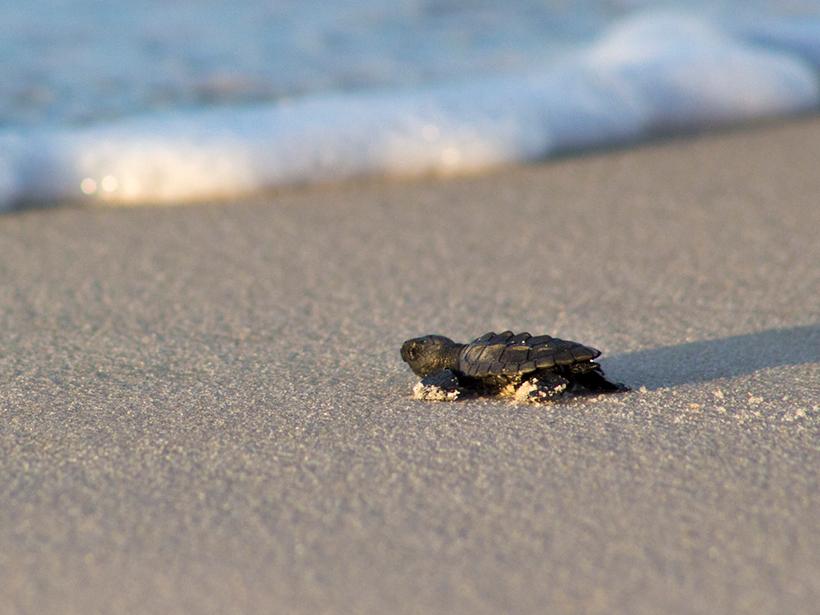Despite runoff from nitrogen-rich fertilizer, agricultural ponds act as powerful sinks for nitrous oxide.
News
New Book Examines the Legacy of Apollo
As the 50th anniversary of the Apollo 11 lunar landing nears, a new book looks back on the race to the Moon.
Bill Would Create a Wildlife Corridors System to Protect Species
In the wake of a recent United Nations report about threats to biodiversity, congressional legislation aims to protect wildlife that faces habitat loss, degradation, and fragmentation.
Podcast: A Tale of Two Journeys
In the latest episode of its Centennial series, AGU’s Third Pod from the Sun tells the story of two parties journeying to the South Pole in 1911 and the extraordinary impact that weather had on their travels.
When Water Met Rock
Geologists discover rocks bearing the earliest known evidence of water interacting with rock on Earth’s surface.
Leaping Global Temperatures Make Frog Disease Deadlier
Climate change will shift the warmest months, when disease rates spike, into tadpole season, which could endanger the long-term survival of common frogs.
Passing Object May Have Kicked Up Dust from a Planetary Disk
The elongated tail of the SU Aurigae protoplanetary disk was likely formed as a result of a flyby from a substellar object.
Tornado Warnings Don’t Adequately Prepare Mobile Home Residents
A survey of the southeastern United States shows that nearly half of mobile home residents don’t know where to shelter during a tornado, and many aren’t getting the resources they need to survive one.
Green New Deal Backers Rouse Enthusiastic Crowd
Congressional leaders call for strong action to fight climate change at a campaign-style rally in Washington, D.C.
Predicting Wave Wash Overs for Sea Turtle Nests
To better protect coastal species, researchers developed a model that predicts harmful wash overs with 83% accuracy.

